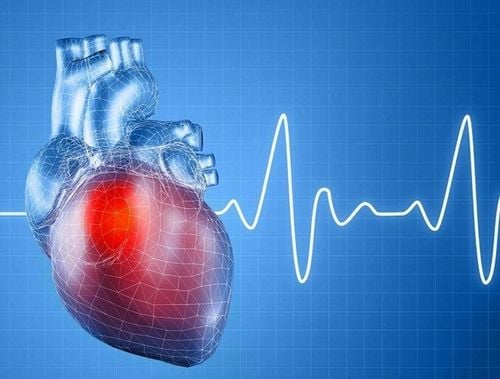This is an automatically translated article.
The article is professionally consulted by Master, Doctor Cao Thanh Tam - Cardiologist - Cardiovascular Center - Vinmec Central Park International General Hospital.1. Resting heart rate and influencing factors
Your heart rate may vary from minute to minute. This variation depends on posture and state of affairs such as whether you are standing up or lying down, moving around or sitting still, tense or relaxed. However, the general trend is that your resting heart rate will be stable from day to day. The usual range for a resting heart rate is between 60 and 90 beats per minute, and above 90 is considered high.There are many factors that can affect resting heart rate. In particular, factors such as genetics play a very important role, aging also tends to increase the speed of the resting heart rate. In addition, regular exercise also tends to slow your heart rate. For example, champion cyclist Miguel Indurain has a resting heart rate of just 28 beats per minute. Other factors such as feelings of stress, medication side effects, and medical conditions also affect your resting heart rate.
Results of observational studies on the link between health and heart rate by researchers from Norway who looked at changes in resting heart rate over 10 years of the study. For this review, they recruited more than 29,000 people with no history of heart disease, high blood pressure, or any other type of cardiovascular disorder, and measured their resting heart rate when they started the study. studied and re-measured 10 years later. The results showed that, compared with people with resting heart rates below 70 beats/min at the start and end of the study, those with resting heart rates increased from less than 70 at the beginning to more than 85 at the later time, had a 90% higher risk of dying during the study. The increased risk of death was slightly less for those with resting heart rates between 70 at the start to 85 at the end of the study. The 90% chance of dying sounds like a huge and scary increase, but stay calm and put these numbers in terms of inclusive information. Among the group whose heart rate stayed below 70 during the study, there were 8.2 deaths per 10,000 people per year. Among people whose heart rate rises above 85, there are 17.2 deaths per 10,000 people per year. It's been shown from the review that lowering your resting heart rate over time may be beneficial, but researchers can't be sure.

2. How to lower your resting heart rate
You don't need to visit a doctor to monitor your resting heart rate, you can monitor it yourself at home. The best time to measure your heart rate is before you get out of bed in the morning. You can measure your heart rate at your wrist or neck by placing 1 or 2 fingers on the pulse point, counting the number of beats for 15 seconds and multiplying by 4.Once you know your resting heart rate, by Here are 4 ways you can start to lower your resting heart rate and support the maintenance of a healthy heart:
Exercise more: When you are active like brisk walking, swimming or walking cycling makes your heart beat faster with exertion and for a short time afterwards. But exercising every day will gradually slow your resting heart rate. Reduce stress: Activities that help relax the mind and soul such as meditation, tai chi, and other anti-stress techniques can lower your resting heart rate over time. Avoid tobacco use: People who smoke or abuse tobacco have a higher resting heart rate. Quitting smoking will bring it back to normal. Lose weight if necessary: Higher body weight requires more work from the heart to supply blood. Therefore, losing weight is one of the optimal ways for you to slow your elevated resting heart rate. In addition to monitoring heart health, do not forget to have regular health check-ups to screen for cardiovascular disease more effectively and safely. Currently, Cardiovascular Center - Vinmec International General Hospital is one of the leading centers in the country for examination, diagnosis, screening and treatment of cardiovascular diseases. With the convergence of a team of experienced, reputable experts in the field of surgery, internal medicine, interventional cardiac catheterization and the application of advanced techniques in the diagnosis and treatment of diseases. Cardiovascular management, along with a system of modern equipment, on par with the most prestigious hospitals in the world such as: 3 Tesla MRI machine (Siemens), 640 CT machine (Toshiba), other equipment EVIS EXERA III advanced endoscope (Japan Olympiad), Avace high-end anesthesia system, Hybrid operating room according to international standards... The Cardiovascular Center at Vinmec International General Hospital has achieved many successes. work and gain the trust of a large number of patients.
Please dial HOTLINE for more information or register for an appointment HERE. Download MyVinmec app to make appointments faster and to manage your bookings easily.
Reference source: health.harvard.edu













